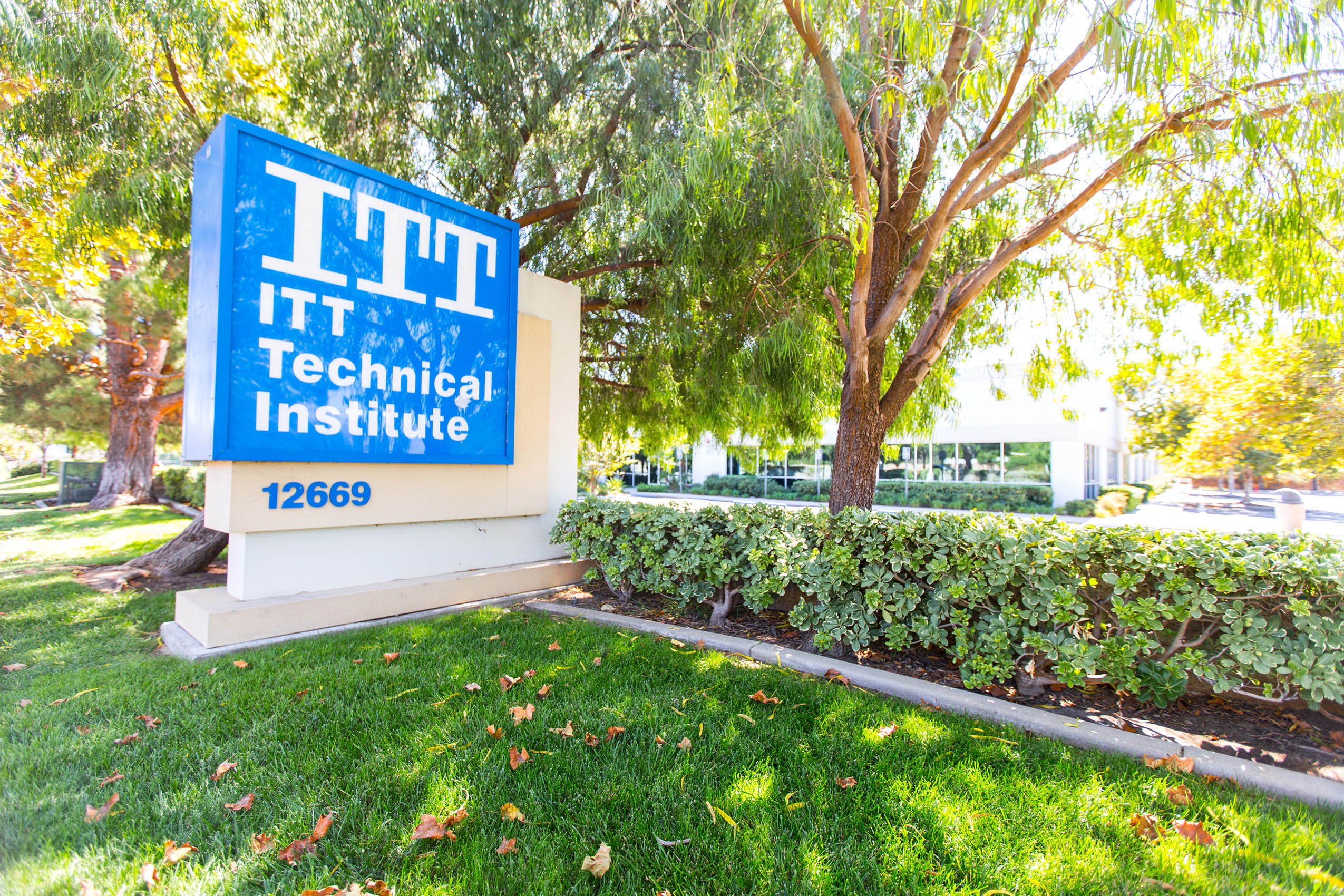People
Toby Merrill
-
Students who got partial loan relief to see full discharge
March 22, 2021
Students who were defrauded by their colleges and received only partial relief from their federal loans could now see them fully canceled, the Biden administration announced Thursday, reversing a Trump administration policy. The change could lead to $1 billion in loans being canceled for 72,000 borrowers, all of whom attended for-profit schools, the Education Department said...In addition to having their loans fully canceled, students will be reimbursed for any payments made on the loans and have their eligibility for federal student aid reinstated. The department said it also would ask credit bureaus to remove any negative ratings tied to the loans. “Abandoning partial relief is a strong start for a narrow subset of borrowers, but what we need from the Education Department is an overhaul of the current borrower defense process,” said Toby Merrill, director of the Project on Predatory Student Lending, which represents former for-profit college students. "The previous administration turned borrower defense into a total sham that was rigged to deny claims without any true consideration," Merrill said. "The Biden-Harris administration must now address these failings or else perpetuate a system that is stacked against the very students they are supposed to protect.”
-
COVID and the law: What have we learned?
March 17, 2021
The effect of COVID-19 on the law has been transformative and wide-ranging, but as a Harvard Law School panel pointed out on the one-year anniversary of campus shutdown, the changes haven’t all been for the worse.
-
Biden wants to go big on the economy but go small on student-debt reform
February 18, 2021
President Joe Biden has a $1.9 trillion plan and a $1.7 trillion problem. He wants to go big on the former, but, unlike several prominent Democrats, more conservative on the latter. The $1.9 trillion, of course, is the stimulus plan that Biden was touting in last night's CNN town hall in Wisconsin. But when asked about proposals to cut into the $1.7 trillion in outstanding student-loan debt (as of the third quarter of 2020), the president expressed caution. Democratic lawmakers including Senate Majority Leader Chuck Schumer, Sen. Elizabeth Warren, and Rep. Alexandria Ocasio-Cortez have called on Biden to use his executive power to cancel up to $50,000 in student debt per person...In addition, a letter to Warren from from the legal director Eileen Connor of Harvard Law School's Legal Services Center, as well as attorney Deanne Loonin, and Toby Merrill, director of the Project on Predatory Student Lending, says the secretary of Education has full authority under the Higher Education Act to cancel student debt. In fact, Biden used the Act to extend the pause on student loan payments, and Democrats in the Senate and House, such as Ocasio-Cortez, are pushing for him to do the same with student debt cancelation.
-
For-profit colleges brace for reckoning in Biden era
February 3, 2021
After years of deregulation by the Trump administration, for-profit colleges are bracing for a major reckoning as consumer advocates and lawmakers pressure the Biden administration to take action. “For four years under President Trump and Secretary DeVos, the for-profit college industry had an outsized voice and influence at the Department of Education,” Toby Merrill, director of the Project on Predatory Student Lending at Harvard Law School, told Yahoo Finance. “The Trump administration repeatedly sided with this predatory industry and against the very students our government is supposed to serve. That must end.” Former Education Secretary Betsy DeVos loosened several Obama-era regulations intended to hold for-profit schools accountable, including rules based on whether their graduates were able to repay their student loans and how information about colleges was presented on department’s website.
-
How Biden Wants to Trim a Mountain of Student Debt
January 27, 2021
Among the economic issues facing the new Biden administration is how to help alleviate the weight of $1.7 trillion in student debt, a figure that had ballooned from $1 trillion in 2012. All but about $100 billion of that money is owed to the federal government by some 43 million people. President Joe Biden has said he supports a plan for Congressto cancel as much as $10,000 in debt for federal student borrowers, in part as a response to the pandemic. It’s a proposal that’s been welcomed by some, and called both too much and too little by others...What’s the argument in favor of the debt-canceling plan? That it would reduce stress on those who borrowed for school and give the economy a boost by allowing them to spend money that otherwise would have gone back to the government. The proposed amount of $10,000 per person would also deliver concentrated economic benefit to borrowers of color, according to Toby Merrill, founder and director of the Project on Predatory Student Lending at Harvard Law School. She said there are a disproportionate number of such borrowers in the group who would have their whole debt wiped out. It would remove their risk of future default, she said, adding that, “Many of these borrowers also happen to be among those most severely impacted by the coronavirus and our current economic crisis.”
-
It’s a pressing question not just for higher-education experts and legal wonks. Tens of millions of Americans have a lot riding on the answer: Can the president forgive student debt without Congress? If the president was able to cancel student debt without passing legislation, in theory borrowers could see their balances reduced or eliminated overnight. On the other hand, the chances of Congress agreeing to forgive the loans is, at best, uncertain. Generally, Republicans are not in favor of debt forgiveness. For now, it’s also an open question if President-elect Joe Biden has interest in testing his presidential power in this way...During the 2020 Democratic presidential primary, Massachusetts Sen. Elizabeth Warren vowed to forgive student loans in the first days of her administration, including with her announcement an analysis written by three legal experts, based at the Project on Predatory Student Lending at Harvard Law School, who described such a move as “lawful and permissible.” Biden, however, has not gone as far...CNBC asked Toby Merrill, founder and director of the Project on Predatory Student Lending at Harvard Law School, how she’d explain to a 15-year-old why she believes it’s within the president’s power to do so. “The Constitution gave Congress the authority to control property of the government, like debts owed to it,” she wrote. And Congress, Merrill said, granted the Secretary of Education, who works for the president, “the specific and unrestricted authority to create and to cancel or modify debt owed under federal student loan programs.”
-
Should the Biden administration cancel student debt? This guide might help you decide
November 19, 2020
If you’ve been on Twitter lately you may have heard that there’s a possibility that President-elect Joe Biden would cancel some student debt — and you likely saw a lot of back and forth about the idea. Following a speech on the economy Monday, Biden told reporters that student-debt cancellation “does figure in my plan,” after being asked about it. Indeed, on the campaign trail, Biden proposed cancelling $10,000 in student debt as a coronavirus relief measure. Still, he stopped short Monday of saying he would cancel the debt without the help of Congress...Democratic Senators Chuck Schumer and Elizabeth Warren have said that cancelling up to $50,000 in student debt is something Biden can and should do immediately. Their urging is based in part on a legal memo written by lawyers at Harvard Law School’s Project on Predatory Student Lending, which notes: “The Higher Education Act gives the Secretary of Education the authority to cancel student-loan debt,” said Toby Merrill, the director of the Project and one of the memo’s authors. But even among those who support broad-based student-debt cancellation, there is some concern about doing it through executive action.
-
From student-loan forgiveness to targeting for-profit colleges, the Biden administration will aim to reverse many of Betsy DeVos’s education policies
November 16, 2020
When Betsy DeVos was confirmed as Secretary of Education nearly four years ago, Vice President Mike Pence broke a tie in the Senate, making her nomination for the post one of the most controversial in recent memory. Her history of philanthropy and advocacy promoting initiatives that provide public funding for education outside of the traditional public-school system — like charter schools and voucher programs — made her a lightening rod in education policy circles. Her tenure has been no different. Over the past four years the Department, under her direction, has made changes to policies on topics ranging from racial disparity in K-12 school discipline to the process by which scammed students can be made whole when their colleges are accused of fraud... “That’s really not going to be enough just to reverse course on what the Trump administration has been up to, for our clients,” said Toby Merrill, who represents former for-profit college students in litigation as the director of Harvard Law School’s Project on Predatory Lending. “No administration has ever really wrapped its arms around the wrong that’s been done by this industry and the harm that people have carried for so, so long,” she said. Merrill said she’d like to see a Biden administration wipe out these borrowers’ invalid debt as well as eliminate “the ability of these companies to create the debt in the first place.” Biden promised on the campaign trail to make it more difficult, though not impossible, for for-profit colleges to access the federal financial-aid program. Merrill said she’s optimistic that Senator Kamala Harris’ history with the sector — she obtained a $1.1 billion settlement with Corinthian Colleges, a defunct for-profit chain, over claims the school misled students about job placement rates and other metrics — will translate into an aggressive approach. “She knows how bad it was and how much people need relief,” Merrill said of Harris. “I’m hopeful that she will be especially well-positioned to make sure that people get that relief.”
-
Education Department unveils new loan forgiveness website, expert calls it ‘a distraction’
November 16, 2020
The Education Department (ED) has created a new website for borrowers who are seeking debt relief after being defrauded by a college. But one expert involved in litigating these borrower defense claims said the changes were mostly cosmetic. “Throughout this administration, what we've seen is the substitution of process for substance,” Toby Merrill, director of the Project on Predatory Student Lending at Harvard Law School, told Yahoo Finance. “None of the actions that the department has undertaken has been providing relief to borrowers,” she added, “and that's the only thing that they need. I think this is a distraction — this is purposeful distraction.” The new website attempts to improve the borrower defense process, which involves former students of allegedly predatory schools seeking loan forgiveness...Overall, Merrill stressed, the website doesn’t address the root of the problem. “Right now our borrower defense mechanism doesn't work at all, so I still think people should have started there,” she said. “It's hardly the form of the application that is like the source of my concern.”
-
Attacking the Concept of Debt
September 10, 2020
Only a few years ago, Douglas Jones, who worked night shifts as a security guard at a nursing home in Roxbury, was hesitant to spend even $10 more than his typical budget allowed. Payments on his student loan debt were being withdrawn directly from his bank account. If the balance was short—for instance, if Jones hadn’t managed to get 40 hours at his job that week—the bank charged an overdraft fee...Along with millions of other Americans, Jones had fallen prey to the for-profit college industry, which is in essence a two-pronged system—federal loans at one end and for-profit schools designed to access those loans at the other...In 2016, Jones stumbled across an advertisement for the Project on Predatory Student Lending (PPSL) at Harvard Law School (HLS), and lawyers there helped him cancel his debt on the grounds that the Everest Institute had violated federal guidelines...Since its inception in 2012, PPSL has helped eliminate hundreds of millions of dollars of student-loan debt. HLS lecturer Toby Merrill, J.D. ’11, founded the project after seeing similarities between predatory-lending practices in subprime mortgages and for-profit colleges. She hoped tactics like those that lawyers used against the subprime mortgage industry—“litigating on behalf of individuals against underlying bad actors”—could be used against for-profit schools. PPSL does individual casework, but also pursues more systemic change: its “mission is to make it so that these schools can’t exist, that they can’t continue to perpetuate these predatory practices on students,” says Victoria Roytenberg, a senior attorney at PPSL. “We do that first and foremost with litigation; we do that in our work with policymakers and elected officials.” ...The for-profit college industry, explains Eileen Connor, PPSL’s legal director, preys on low-income and minority individuals, as well as single parents and veterans, for many of whom higher education seems like a distant dream. It is a relationship ripe for abuse, she says. When meeting with a for-profit college recruiter, few people realize they are dealing with a salesperson working on commission and thus are likely being taken advantage of, “because they’ve been conditioned over their entire lives to think education is something good and public-minded.”
-
Students at some for-profit career schools could find themselves paying hefty interest charges when using a credit line offered by PayPal, a group of consumer watchdog groups warned this week. More than 150 small career schools and technical programs, most of which aren’t accredited and are loosely regulated, offer students the option to pay tuition using PayPal Credit, a digital credit line marketed by PayPal Holdings and issued by Synchrony Bank, the groups found. The line, similar to a credit card but without the plastic, currently has an interest rate of about 24 percent, and is typically promoted with a six month, no-interest period. Borrowers are charged interest retroactively if the entire balance isn’t paid by the end of the promotion, a feature known as “deferred interest,” the groups said in a letter to federal regulators...How should I evaluate a technical or career program Students should vet a program before borrowing to fund educational costs. “Any loan for a program of unknown quality is a potential problem,” said Toby Merrill, director of the Project on Predatory Student Lending at Harvard Law School’s Legal Services Center. Look for a school that is licensed by the state where it operates, and is accredited by an independent authority (such as one on the list of accreditors recognized by the federal Education Department).
-
Students at some for-profit career schools could find themselves paying hefty interest charges when using a credit line offered by PayPal, a group of consumer watchdog groups warned this week. ... More than 150 small career schools and technical programs, most of which aren’t accredited and are loosely regulated, offer students the option to pay tuition using PayPal Credit, a digital credit line marketed by PayPal Holdings and issued by Synchrony Bank, the groups found. ... Students should vet a program before borrowing to fund educational costs. “Any loan for a program of unknown quality is a potential problem,” said Toby Merrill, director of the Project on Predatory Student Lending at Harvard Law School’s Legal Services Center.
-
Harvard Law faculty summer book recommendations
July 30, 2020
Looking for something to add to your summer book list? HLS faculty share what they’re reading.
-
Brighton graduate Toby Merrill was named to Time Magazine's list of the "100 Next." That's because Merrill has been a leader in the fight against predatory for-profit colleges and institutions. As student debt piled past one trillion dollars, Merrill launched a plan to combat what she calls the "worst-of-the-worst student debt." Merrill is the founder and director of Harvard Law School's Project on Predatory Student Lending. Her team represents thousands of former students who have been fleeced and lied to, often ending up with piles of debt and worthless degrees. One of her most recent cases named Education Secretary Betsy DeVos as a defendant. We discuss the plight of student loan debt, the worst offenders, and why the industry is still so profitable. Our guest: Toby Merrill, founder and director of Harvard Law School's Project on Predatory Student Lending.
-
A federal judge has ordered US Department of Education Secretary Betsy DeVos to cancel the student loan debt of more than 7,200 Massachusetts students who attended Everest Institute, part of Corinthian Colleges’ defunct national chain of for-profit schools, capping a prolonged legal battle. In a 73-page decision, US District Judge Leo T. Sorokin ruled that the Department of Education must approve a 2015 application by Massachusetts Attorney General Maura Healey seeking a discharge of the students’ federal loans based on allegations of widespread illegal conduct and deception by Corinthian. The order also applies to Parent Plus loans obtained on the students’ behalf. “Thousands of Massachusetts students cheated by Corinthian have finally had their day in court, and they have won,” Healey said in a statement Friday. “This landmark victory for students will cancel the federal loans for thousands of defrauded borrowers, mostly Black and Latinx students, targeted by a predatory for-profit school and abandoned by Secretary DeVos and the Trump Administration. For five years, our office and the Project on Predatory Student Lending have fought to win students the relief they deserve and today we have won decisively.” ...The ruling was issued in a case the Project on Predatory Student Lending Legal Services Center of Harvard Law School had filed on behalf of five students who had attended Everest Institute, which had campuses in Brighton and Chelsea. It went bankrupt in 2015 after running afoul of state and federal regulators. In his ruling, Sorokin granted the plaintiffs’ request for class-action status, expanding his order to include more than 7,200 students who attended the school. “This ruling is a clear and powerful statement of the rights of student borrowers, and a resounding rejection of the Department of Education’s ongoing and across-the-board refusal to recognize these rights and cancel fraudulent student loans,” said Toby Merrill, who directs the Project on Predatory Student Lending.
-
Scammed borrowers sue Betsy DeVos, alleging she illegally limited student-loan cancellation
June 10, 2020
Students who’ve been scammed by their schools are being illegally cheated again — this time out of the loan cancellation that they’re entitled to, a new lawsuit alleges. A group of student-loan borrowers filed a class-action lawsuit Tuesday accusing Secretary of Education Betsy DeVos and her department of illegally limiting the amount of relief student-loan borrowers who were misled by their schools receive...In some cases, borrowers who the agency agrees were lured by false promises into taking on high levels of student-loan debt are having just 10% of their loan balances cancelled, the lawsuit alleges. The borrower defense rule is “supposed to be about cancelling debt and providing appropriate relief to people who have been cheated,” said Toby Merrill, the director of Harvard Law School’s Project on Predatory Student Lending, which is representing the students. The partial relief version of the rule that the Department of Education is currently using is “so clearly not designed for that,” Merrill said...A borrower only receives full debt relief if the median earnings of their program is in the lowest 2.5% of comparable programs. “This formula was engineered to give the least possible relief to borrowers,” Merrill said. By solely using similar programs as a basis for comparison, the rule uses as a metric the earnings of other mostly for-profit college students who may have been subject to similar harm, Merrill said. “If the truth is there was pervasive wrongdoing and misrepresentation, the fact that everyone was lied to doesn’t excuse that,” Merrill said. In addition, the rule fails to take into account other factors that would be key to determining whether a borrower was harmed by their school, including the amount they borrowed. The focus on earnings, is “trying to measure a sense of economic security or well-being,” Merrill said. “That of course depends on other things, but most obviously relevant here, is how much debt you have.”
-
Sejal Singh ’20 is the recipient of the David Grossman Exemplary Clinical Student Award. She was recognized for her work on the Project on Predatory Student Lending, as well as her exemplary contributions to public-interest endeavors.
-
After $14 billion was set aside for higher education in the Coronavirus Aid, Relief and Economic Security Act, Houston Community College and the Paul Mitchell Schools both got financial relief. The Houston college, a public institution with nearly 60,000 students, received $28.3 million. The for-profit hair and cosmetology schools received $30.5 million, despite serving only 20,000 students. The CARES Act money was meant to help low-income students and the schools that serve them. An NBC News analysis found, however, that for-profit schools got proportionally more money from the aid package than the nation’s community colleges, which serve the majority of the country’s low-income students, often at a much lower cost...Florida Career College, a for-profit vocational and trade school, is slated to receive more than $17.3 million in CARES Act funds. But a lawsuit filed in April accuses the school of targeting black students with high-pressure tactics that left them deeply in debt. Only one of the school’s 17 programs passes the federal measure of whether what graduates earn can cover their loans and basic needs, according to a class-action suit filed by Harvard Law School’s Project on Predatory Student Lending. After graduating, students able to find jobs in the area they studied earn between $9,000 and $33,000, the lawsuit claims. “I don’t think the government should be giving taxpayer dollars to companies whose business model is cheating students,” Toby Merrill, director of the Project on Predatory Student Lending, said.



